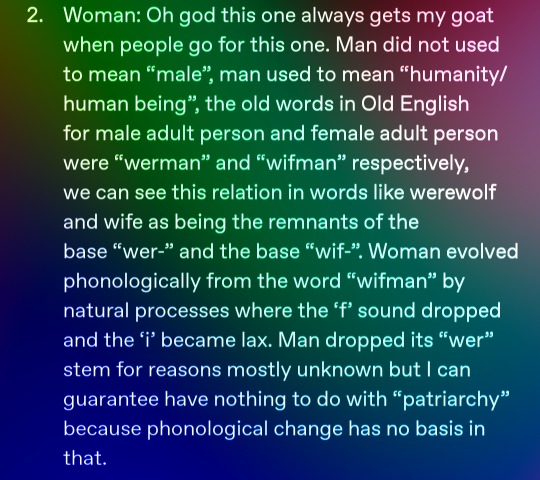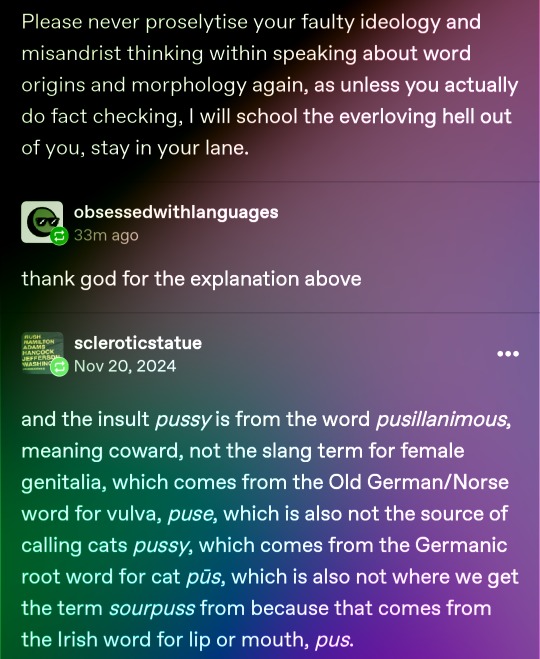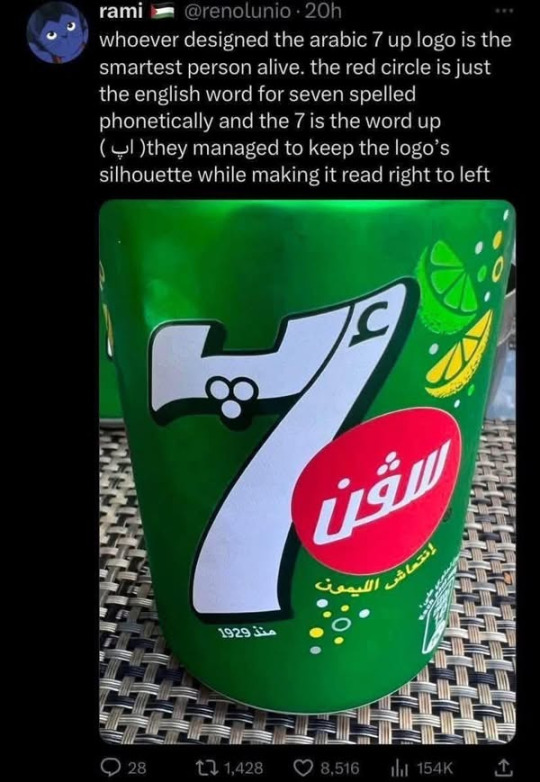Just a side blog for language stuff. Main at @jjeremysstash
Don't wanna be here? Send us removal request.
Text
It's always soooo funny to see monolingual English speakers come and say "wow English is soooo gendered"
*stares in French*
0 notes
Text
French people be like let's fuckin geaux
#L-let's fucking... (soft j) jo#E after G makes the G soft so it's not like go#OP should've added a U just after to make Gueaux#And I'm not even gonna get into the differences between AU EAU and O (and Ô)
133 notes
·
View notes
Text
Piece of Asian media: *has a title that's obviously not in English*
Fan Translators: hmm taking into account the intention of the original and the rules of both languages, plus the tone of the story, the best title would probably be something like Adherent of the Blade of Duality, but probably an official translation would want to shorten it to Blade of Duality, or perhaps Double-Edged Sword to borrow a popular turn of phrase that also fits thematically--
Official English Translators: Master of Double-Penetration
#not for english but for french and...#I have SO MUCH BEEF against certain translations like omg#like I thought the entire point of translation was to use your brain and yet...
22K notes
·
View notes
Note
I have an interest in translation work, and since I am a native French speaker who is decently fluent in English, I like to watch/read/play English-language media in both the original version and the French version —so I can recognise voice actors, judge the casting choices, look for what other choices the translators and localisers made, why they made those choices, what other options they had, if I might have done something differently in their place… all that fun stuff, you know?
But whenever I mention this hobby to people (read: fellow native French speakers), all I get as a reaction is: "Eww French dubs!!! So gross!!!"
I get that some prefer watching only OG versions and I quite frankly don’t care about that, but WHERE did they get the idea that it was okay to say "ew" after someone shared something they are passionate about??
Anyway, I was wondering if you faced similar things since translation is literally your whole thing. Does it happen often?
Sorry this ask is so old, I actually didn't see it. But yes, I know EXACTLY what you're talking about. The classic example has got to be with those with a SpIn in maths, certain fields of zoology (usually entomology), etc.
I never get "ew" from translation per se but I do get it with French - usually as a "lol France sucks" joke but you don't tend to hear it about, say, Portuguese or Spanish or Dutch, despite the three having just as extensive histories of colonisation. People say in turn they associate Spanish/Portuguese with LatAm in turn, but French is just as closely associated with Africa and to a lesser extent the Middle East, so I don't know if that is quite why.
I think at worst people tend to find translation (and LOTE in general) really boring so I don't tend to talk about it as much with people I meet as much as I would like to. I'm sure it interests those interested in meaning-making, cultural differences etc but I rarely get asked about it - I can only assume because what the hell would one even ask? I probably wouldn't know if I weren't into it myself.
The dubs thing is interesting though. I'm so sorry people are like that :( i think it's borne of a lack of familiarity with the Japanese language, leading people not to realise that Japanese voice acting in anime is just as ridiculous.
#Yeah I mean...#French dub can feel really fucking weird and even ew#I have my theories on that though. Like I don't think it's that hard to understand in and of itself as to why people don't like French dubs#But also understanding as to why people get into the state needed to be 'ew french dub' can be a bit difficult#Like idk how are the ankles? Why are they like that just from knowing a language?
9 notes
·
View notes
Text
Local language learning hobbyist realises that they do in fact have to dedicate time to learning vocab to learn more words
#Yeah like what do you mean I can't understand/use the language because I don't have the vocabulary?????#Baffled that I don't know words I haven't learned
586 notes
·
View notes
Text
Blind people gesture (and why that’s kind of a big deal)
People who are blind from birth will gesture when they speak. I always like pointing out this fact when I teach classes on gesture, because it gives us an an interesting perspective on how we learn and use gestures. Until now I’ve mostly cited a 1998 paper from Jana Iverson and Susan Goldin-Meadow that analysed the gestures and speech of young blind people. Not only do blind people gesture, but the frequency and types of gestures they use does not appear to differ greatly from how sighted people gesture. If people learn gesture without ever seeing a gesture (and, most likely, never being shown), then there must be something about learning a language that means you get gestures as a bonus.
Blind people will even gesture when talking to other blind people, and sighted people will gesture when speaking on the phone - so we know that people don’t only gesture when they speak to someone who can see their gestures.
Earlier this year a new paper came out that adds to this story. Şeyda Özçalışkan, Ché Lucero and Susan Goldin-Meadow looked at the gestures of blind speakers of Turkish and English, to see if the *way* they gestured was different to sighted speakers of those languages. Some of the sighted speakers were blindfolded and others left able to see their conversation partner.
Turkish and English were chosen, because it has already been established that speakers of those languages consistently gesture differently when talking about videos of items moving. English speakers will be more likely to show the manner (e.g. ‘rolling’ or bouncing’) and trajectory (e.g. ‘left to right’, ‘downwards’) together in one gesture, and Turkish speakers will show these features as two separate gestures. This reflects the fact that English ‘roll down’ is one verbal clause, while in Turkish the equivalent would be yuvarlanarak iniyor, which translates as two verbs ‘rolling descending’.
Since we know that blind people do gesture, Özçalışkan’s team wanted to figure out if they gestured like other speakers of their language. Did the blind Turkish speakers separate the manner and trajectory of their gestures like their verbs? Did English speakers combine them? Of course, the standard methodology of showing videos wouldn’t work with blind participants, so the researchers built three dimensional models of events for people to feel before they discussed them.
The results showed that blind Turkish speakers gesture like their sighted counterparts, and the same for English speakers. All Turkish speakers gestured significantly differently from all English speakers, regardless of sightedness. This means that these particular gestural patterns are something that’s deeply linked to the grammatical properties of a language, and not something that we learn from looking at other speakers.
References
Jana M. Iverson & Susan Goldin-Meadow. 1998. Why people gesture when they speak. Nature, 396(6708), 228-228.
Şeyda Özçalışkan, Ché Lucero and Susan Goldin-Meadow. 2016. Is Seeing Gesture Necessary to Gesture Like a Native Speaker? Psychological Science, 27(5) 737–747.
Asli Ozyurek & Sotaro Kita. 1999. Expressing manner and path in English and Turkish: Differences in speech, gesture, and conceptualization. In Twenty-first Annual Conference of the Cognitive Science Society (pp. 507-512). Erlbaum.
90K notes
·
View notes
Text
I hate the post this its so bad

I'm so tired right now so this is gonna be short but
1. even if it started from meaning people in general and then became specific to men, that doesn't change that men are now the default.
2. the idea that this change happened for unknown reasons but definitely not patriarchy, is silly. structural forces obviously have an effect on language and if you don't know how it changed claiming you know how it didn't change is extremely arrogant.
3. I looked this up to check if we actually don't know why the change happened and as it turns out the change never happened at all. this entire fact is made up. wer meant man, werman was never a word and is purely a fabrication, it would literally mean manman and there's no evidence of it being used historically. this is bunk etymology.
also:

aside from this being obviously anti feminist, the last addition is nonsense as well. etymology is important to a degree but the insult and the genitals are spelled and said exactly the same. guess what? this is nonsense bunk etymology too! the term pusillanimous is in no way linked to the term pussy being used as an insult. the former fell out of usage far before the later usage ever rose to popularity. They're also said very differently and are, or course, written differently.
this entire post is propagandistic cover for societal misogyny. do not take it at face value.
1K notes
·
View notes
Text
155K notes
·
View notes
Text
to tug and to pull being translated in the same manner in French will be the death of me...
0 notes
Text
each time I think about a translation but I'm not sure and I check with an NMT and it gives me the same thing as I thought I'm here like "hehe, so big brain of me"
0 notes
Text

117K notes
·
View notes
Text
I have no idea if it's something people not knowledgeable about it do or if it's something USAmericans do, but when you make a manual or explain something globally within a program, you usually DO NOT address the user upfront, it sounds weird and the register is bad. The users aren't your friends.
It also means that when I translate stuff like that I cringe the entire time because the language isn't AT ALL professional and it's just horrendous to translate to French.
0 notes
Text
hellochinese is soooo good but it's not free and I don't have 150€ to spend through google to be able to learn chinese...
0 notes
Text
If you use Duolingo, maybe don't anymore? The company is moving to be "AI-first" and is using AI to generate their content. Meaning, AI is now generating your language lessons.
They announced that they were going to use AI for this a while back but now they're annoucing that they're getting rid of the contractors reviewing the AI generated content. So, very soon Duolingo is just going to be AI generated slop that might not even be correct.
For alternatives, I'd recommend checking with your local library. For instance, mine offers Rosetta Stone for free if you have a library card.
30K notes
·
View notes

